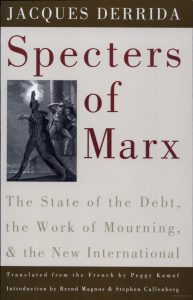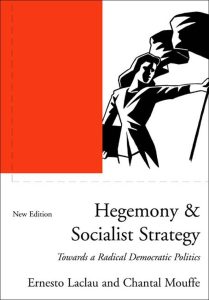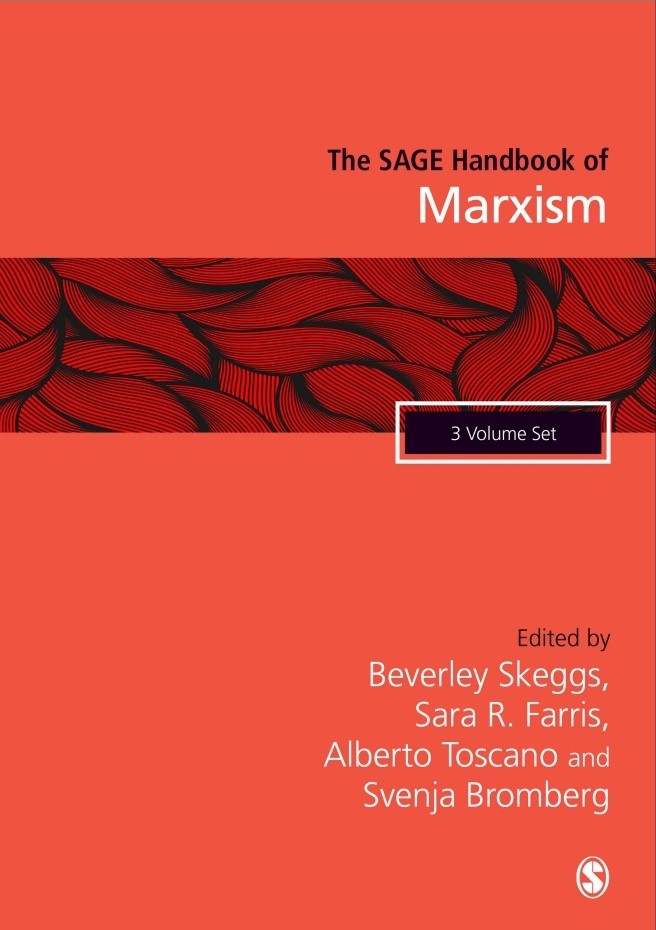By Adagbo Onoja
The months of December 2024 and January 2025 can be ceded to the tribe of Marxists in Nigeria as their months. Prof Bene Madunagu was buried January 18th, 2025. She is a Marxist additionally married to a Marxist with no apologies. Prof Nuhu Yaqub died January 4th, 2025. He remained a Marxist all his life. Dr. Segun Osoba turned 90 on January 9th, 2025. He domesticated Marxism like no other and remains an unfolding event in himself. Prof Jibrin Ibrahim was celebrated on December 2nd, 2024 in a manner that showed Marxists eating into other ideological tribes, especially Catholicism and the traditional establishment. Yet, ‘Jibo’ started as a solid Marxist.
In other words, in death and in renewal, the Marxists have simply decided to no more leave the business of dominating the news to their ideological Other – the bourgeoisie anymore. That should speak to a moment, albeit a qualitative one for that matter. What a better way of inflaming that with a review of The Sage Handbook of Marxism, the unusually hefty return of Marxism with a vengeance.
 Before plugging into the review, we might need clarify why spending so much time about one theory or the other at a time of mass misery and collective ordeal for a majority of the population. It is a topic with all manner of plausible answers, none of which would be right or wrong except for the consensus (at least in the social sciences) that theory is what makes the world hang together. Without theories, the world as we know it would be a dead world. This should be understandable because even those who detest theories, partly because it can be abstract, are themselves theorising already. That is, hatred of theories is theoretical. So, we cannot do without theories.
Before plugging into the review, we might need clarify why spending so much time about one theory or the other at a time of mass misery and collective ordeal for a majority of the population. It is a topic with all manner of plausible answers, none of which would be right or wrong except for the consensus (at least in the social sciences) that theory is what makes the world hang together. Without theories, the world as we know it would be a dead world. This should be understandable because even those who detest theories, partly because it can be abstract, are themselves theorising already. That is, hatred of theories is theoretical. So, we cannot do without theories.
The problem, however, is that theories are always for someone and for some purpose. Formulated in 1981, this remains unchallenged. Not only is it unchallenged, it has also gone on to form the foundation (not foundational) stone of critical theory (the one with Capital C rather than the one with small C which is a bigger deal). If every theory is for someone and for some purpose, meaning that no theories are innocent, then theories must remain permanent battlegrounds. If this is right, then a theory such as Marxism is bound to be the site of theoretical turf wars.
For Marxism, attacks and counter attacks has been the experience ever since. It has been on fire throughout the world long before and even more after the collapse of communism in East Europe, ending the Cold War. As every such major geopolitical shift challenges and changes the knowledge structure, post-Cold War attacks on Marxism have been voluminous. The moment came in 1985 when it was categorically stated that “ At this point we should state quite plainly that we are now situated in a post-Marxist terrain. It is no longer possible to maintain the conception of subjectivity and class elaborated by Marxism nor its vision of the historical course of capitalist development nor, of course, the conception of communism as a transparent society from which antagonisms have disappeared”.
This was preceded by another key proclamation: What is now in crisis is a whole conception of socialism which rests upon the ontological centrality of the working class, upon the role of Revolution, with a capital ‘r’, as the founding moment in the transition from one type of society to another, and upon the illusory prospect of a perfectly unitary and homogeneous collective will that will render pointless the moment of politics”
These were not totally unexpected, given the fireworks the French 7 had instigated but it still caught the world unprepared for it. When the world regained its breath, it fought back. Norman Geras, a Professor of English at the University of Edinburgh fired what can be called the first shot. Unfortunately, he didn’t quite go far. Ernesto Laclau, one of the authors of the devastating pronouncements replied him in the essay “Post-Marxist Without Apologies”, an essay some people regard as hotter than Hegemony and Socialist Strategy, the book pronouncing a post-Marxist world. A group of much younger scholars spread around UK universities organised and hit at Laclau by arguing that the world is actually gone beyond hegemony. They were shut down by Laclau’s legatees concentrated at the University of Essex in the UK. Some people like Terry Eagleton, then at Oxford, wondered if Laclau were not serving capitalism. He got a deserving reply. Some others thought the CIA had got a great friend in Laclau but only for them to discover that Laclau had remained a radical activist of the Peronist persuasion in Argentina and from where he drew practical lessons and on which he reflected upon later as an Oxford student and later as an academic to produce the critique of classical Marxism. Above all, his Hegemony And Strategy of a book itself has other things which very established scholars have been pondering upon and could not dismiss. It is, indeed, a dense book, in content, not in size.
Laclau seems to be having a problem of recognition corresponding to the stature of his theoretical breakthrough, a reality some scholars put to his non- Western identity. But the Essex School of Discourse Analysis he pioneered has expanded too quickly into powerful links and networks across Europe and North America. Meanwhile, there is nothing to show that Derrida is falling from grace in North America. Poststructuralism which is a lot of Derrida and Laclau have commandeered almost all of Geography, much of International Relations, Literary theory and media studies. It has captured almost all of security studies, forcing a renaming of Strategic Studies into Critical Security Studies. While it is true that theories do not expire, a rising theoretical framework can overshadow contending theories.
The Sage Handbook of Marxism has therefore arrived at a good time, not to restate Marxism but as far as comprehensively re-arranging Marxism is concerned. Why re-arranging and not restating? Simply because once there has been a paradigm shift, it is difficult to stay afloat the world created by the new paradigm without re-arranging the grounds of an old paradigm. Marxism has not expired but Marxism needs re-arrangement. The Sage Handbook seems to have done that.
It is not an entirely new text, having been published in November 2021 except that, unlike other titles in the Sage series, it appears not to have struck the chord upon its release. For Intervention, for example, which can claim familiarity with the Sage series in the social sciences and humanities, it was a surprise one hadn’t seen it before now, notwithstanding that the Sage series is about the most popular set for social research on earth today, beating back established hegemons in the publishing business such as Blackwell, Cambridge, Oxford, Palgrave Macmillan, Routledge and the others.

Difficult to read but shattering of innocence
Discovery came by chance. There had been a zoom session on “Hegel and colonialism” during which some links were shared. It was in the course of pursuing the links that Intervention chanced on the 2021 publication. It is a magnificent text, standing at 1691 pages and dwarfing all other such titles from the hegemons mentioned earlier.
Except for The Oxford Handbook series which generally goes up to 800 and 900 pages (with the exception of the titles on Political Economy and Comparative Politics which went up to 1112 and 1035 pages respectively), much of the rest, especially Blackwell and Palgrave Macmillan, steady at between 300 and 400 pages, except in few case. It is Routledge which enjoys hovering around 700 pages in most cases. So, 1691 pages in the case of The Sage Handbook on Marxism tends to send a message of combatants on the move. Predictably, it covers the entirety of Marxism, with about three out of the seven parts, 3 – Volume set dedicated to new areas that were either not formally addressed or superficially treated by Marx himself. Part Seven for instance, has a chapter each on topics such as intersectionality, Black Marxism, social movements, Riots, Utopia, Affect, Animals, Desire, the body, filming capital, Horror film, prostitution and sex work, cognitive capitalism, bio-cognitive capitalism, intellectual property, deportation, borders and a few others I have deliberately left out. It is the strongest demonstration that the contributors to the title are on warpath, determined to show that Marxism can be expanded to cover whatever topic/theme on earth.
Of course, the title started with the more conventional concepts and themes in Marxist Political Economy with chapters on merchant capital, mode of production, rent, value, money and finance, labour, automation, methods and the transformation problem. The sensitive reader will note that this sub-section is titled “Reworking the Critique of Political Economy”. Apart from the Introduction, the chapter on Methods could be argued to be the right chapter to start reading the hefty text, especially for those who have moved beyond classical Marxism. It shows Marx’s brilliance in his series of interrogation of Hegel but without Marx being able to get out of the constraints of Western metaphysics.
Part Two titled “Forms of Domination, Subjects of Struggle” covers class, punishment, race, slavery and capitalism, gender and servants. Part Three has seven chapter under the title “Political Perspectives” These chapters are politics, revolution, state, nationalism and the national question, crisis, communism and imperialism. It can be called the chapter on heartland Marxism.
Part Four is the chapter most readers would find boring because they are on philosophical themes but it is the segment that will detain those who seek to penetrate Marx and the Marxian imaginary, its strengths and its weaknesses. Here, the chapters are on totality, dialectics, time, space, alienation, praxis, fetishism, ideology and critique, real abstraction and subsumption. Why the chapter on Methods is not part of this part is baffling and why the title did not start with this part is even more baffling.
There is part Five titled “Land and Existence” whose most interesting topics in the light of contemporary challenges must be the chapters on extractivism, agriculture, energy and climate change. The introductory segment to the chapter on climate change predictably insists there is a Marxist explanation of the phenomenon. Surprisingly, this didn’t go beyond classical Marxist categories re-applied.
Part Six titled “Domains” provides a chapter each on anthropology, art, architecture, culture, literary criticism, poetics, communication, International Relations, Law, management, end of philosophy, technoscience, postcolonial studies, psychoanalysis, queer studies, Sociology and Marxism in the United States and, lastly, the university.
The comprehensiveness is such that it is safe to say there has been nothing like it although there are those who would say it is too much of an attempt to show postmodernism that Marxism is not absent even on topics/themes that postmodernism made its own. Part six and seven will be handy evidence for this claim. That does not deny The Sage Handbook on Marxism the status of a massive effort, highly backgrounded with intimate details of how Marx was struggling with the challenge of developing a critique of the knowledge system that sustained incipient capitalism within a larger agenda of unpacking the dynamics and implications of capitalism.
 An interesting feature of the title is the spread of the contributors. Though predominantly academics in mainly British universities, especially Goldsmiths University of London, there are about 30 across American universities, four across Canadian universities, two from Brazilian universities, one from each of Australia, Poland, India, France and the rest of Europe. Aside from Jairus Banaji, Nicholas Thoburn and Peter Drucker, most of the contributors are not the familiar, big names in Marxist scholarship as before. There is no Eric Hobsbawm, no David Harvey, no Terry Eagleton, no Alex Callinicos and so on. It doesn’t mean they are not authorities in their own right on the topics and themes they have written about. They certainly are, especially the discourse analysts of Marxist bent such as in the case of Kalpana Wilson who is introduced as the author of Race, Racism and Development: Interrogating History, Discourse and Practice, a 2012 publication.
An interesting feature of the title is the spread of the contributors. Though predominantly academics in mainly British universities, especially Goldsmiths University of London, there are about 30 across American universities, four across Canadian universities, two from Brazilian universities, one from each of Australia, Poland, India, France and the rest of Europe. Aside from Jairus Banaji, Nicholas Thoburn and Peter Drucker, most of the contributors are not the familiar, big names in Marxist scholarship as before. There is no Eric Hobsbawm, no David Harvey, no Terry Eagleton, no Alex Callinicos and so on. It doesn’t mean they are not authorities in their own right on the topics and themes they have written about. They certainly are, especially the discourse analysts of Marxist bent such as in the case of Kalpana Wilson who is introduced as the author of Race, Racism and Development: Interrogating History, Discourse and Practice, a 2012 publication.
The Sage Handbook on Marxism doesn’t replace reading key works of Marx since the text is an interpretative excursion into early 21st century Marx/Marxism but it helps, especially in updating the major themes Marx touched upon, particularly the ones that have become very controversial in the context of current development of knowledge. Almost all the topics in Part Three are controversial.
This title is coming in at a time Marxism has been rising from the fall from grace that came with the collapse of socialism in East Europe and the rise of Thaterism. Before that event, Michel Foucault declared in a 1975 interview inter alia “It is impossible at the present time to write history without using a whole series of concepts directly or indirectly related to Marx’s thought and situating oneself within a horizon of thought which has been defined and described by Marx. One might even wonder what difference there could ultimately be between being a historian and being a Marxist.” Coming from the bitterest of the rebels against Marxism and a scholar who had developed analytical premises which have cornered a huge chunk of knowledge areas today, it was a big testament for Marxism.
Time, the US weekly said in its June 12, 1993 print edition that the world was in need of another Marx, adding sarcastically that it was best if he was a less troublesome version this time. The following year, Derrida who can be described as providing the ontological uprooting of Marxism came out with his Spectres of Marx in 1994, arguing that the world had no choice but return to Marx. It was typical Derrida in that associating Specters of Marx with Marx is not totally complimentary. Not after his yabbis about Marx, a materialist interpreter of History, starting The Communist Manifesto on a hauntological note.
In 2011, Prof Terry Eagleton published his Why Marx Was Right. It has the merit of a huge cache of data Marxists would love. In 2007, David Harvey had gone back to take and remodel Marx’s concept of ‘primitive accumulation’, updating it to theorise neoliberalism as “accumulation by dispossession”. He did Marxism great service by showing that it is expansive enough to explain new trends in the development of capitalism far beyond Marx’s delimitation for that particular concept. Only Alex Callinicos and his friend have been known to this reporter to have criticised Harvey’s “accumulation by dispossession”, showing the acceptability of Harvey’s theory.
Notwithstanding these testaments, Marxism is up against formidable critique. What Jacques Derrida and Ernesto Laclau have done to Marxism will mean that Marxism can only recover lost grounds only if there is a major rupture in the works of any of the two. Unfortunately, Both Derrida and Laclau have survived the major attacks so far. It is very unlikely that posthumanism can undo/dent Laclau’s theory of hegemony. Above all, both Derrida’s impeccable interrogation of Enlightenment ontology through deconstruction and Laclau’s ontological critique of classical Marxism do not look reversible. They are positions Marx would completely accept if he were here to rewrite the materialist interpretation of history. His ruminations in the Sage handbook testify to that in addition to his concern for agency, consciousness and sensuousness, those being the reason he is credited with actually being the real godfather of discourse theorist. If he lived a little longer, he would most likely have overcome some of the epistemological limitations troubling his legacy and done what Gramsci helped him to do. Unfortunately, Gramsci too was beaten by the binary epistemology that constricted Marx. It fell on Laclau and Mouffe to free Marxism from the binary limitation, especially as it relates to a theory of change. Otherwise, much of what Marx said about capitalism are intact.
Intervention’s worry is where Africa finds itself in all these. Given the memorable and largely uncontested wisdom that every theory is for someone and for some purpose, Africa having no standpoint in all these juggling should bother her scholars. For whom and for which purpose are the theories taught in African universities, Government Houses, churches and mosques, platforms of popular culture, political parties, the civil society grid, armed forces, police and the business community? This question arises as the capacity to domesticate theories and make an African sense of each of them seems missing. It contrasts with the Chinese and their theory of ‘Socialism with Chinese characteristics’. Nigeria actually started decolonial theory, followed by Kenya but today, it is registered to the credit of Latin America. Is it not the same Marxism we all are reading with the Chinese and our Latin American brothers? Hasn’t our seeming lack of theoretical innovation left us thinking the world from outside Africa and worsening our status as a conundrum in world affairs? The question hanging on everyone becomes one of who will bell the cat? Anyway, the book is a free download on the internet.




























